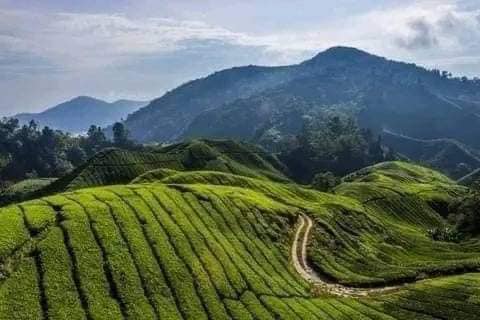Yesterday, I came across the article by Retson A Tedheke . As usual, he writes from a deep place of undiluted patriotism and knowledge that can only come from hands-on experience, battling with real-life challenges confronting us as a nation.
On the Kaduna-Abuja corridor, he submits that “what is happening there is more economic and social than security. If the people are hungry and want to do evil or fight for survival, no amount of security power, military weapons and sophisticated surveillance will work”.
There is no doubt that the monster that we are confronted with, manifesting in the evil being witnessed in the Kaduna axis is a hydra-headed monster, with multi-dimensional roots, but I am more inclined to agreeing with the diagnosis by Retson.
Given how long-drawn the situation has been, it is understandable that many people are quite exasperated, simply wishing for the magic wand that would bring this to an end. Some voice their disappointment with the President, making the point of their expectation that as a soldier, they had the mind that he was better placed to provide security.
Of course, many do not want to be reminded of how bad the situation once was, only a few years back, with Abuja, among other cities, coming under incessant attacks from terrorists. So though there has been a pushback against that band of terrorists, who are now largely confined and reduced to sporadic attacks, the opening of other flanks of attack by other terrorists has made things even more difficult.
As easy it is for some to misconstrue the explanation, when offered, that there is no magic fix to the problem of insecurity, especially once terrorism is in the mix, there is no hiding the fact that there is a limit to what can be accomplished through military solution.
The problem we are faced with runs quite deep. I once wrote about the large swathes of ungoverned spaces around the country. We have always had the absence of governance in the rural areas, but with the decay we have witnessed in values and decline in our sense of community, that absence of governance has become even more obvious.
In the face of every man for himself, with many not keen on being anyone’s keeper, the things that held us together, making ungoverned spaces safe are all but gone. Those spaces now harbour different faces of evil.
Whenever President Buhari talks about Agriculture, some laugh him to scorn. They think he is dated, that his ideas are anachronistic. They don’t get it. First, they do not seem to understand the multimodal nature of agriculture and how the different elements of the enterprise help to hold together much of what we have.
Not many are able to even process the lengthy value chain around agriculture and the myriad of agro-allied opportunities we are yet to tap into. But more importantly, at least for the moment, is the role of agriculture as a possible glue to hold together life in the rural communities, as even the subsistence farming that many used to live on is now hardly able to sustain them, on account of a myriad of factors.
Many people do not understand that the real battle is in the rural communities, with many of the ills plaguing the urban centres firmly rooted in the disconnect back in the rural areas.
Indeed, the Buhari administration has paid a lot of attention to agriculture. A lot of incentives and programmes put together have helped to improve the lives of some farmers. But even with the tremendous successes that have been witnessed in the increased production of some crops, these programmes, by themselves can only go so far, given some structural deficiencies that go deep down.
In the first place, intervention from the top in a sector that should be driven from the bottom by state and local governments can only go so far. The Federal Government does not have direct ownership of land, except in the FCT, and with agriculture here largely land-based, there is considerable constraint on the level of sustainability of the impact of top-down intervention programmes in rural communities.
By and large, the rural communities are detached from centres of development. Rural farmers are the weakest link in the value chain, making the least from the sales of their produce. Inability to store or process force their hands to sell in season, with supply glut forcing prices down. Buyers from urban centres are excited to pick up full baskets of tomatoes for next to nothing, unable to connect buying so cheap with the poverty chain. They are not thinking about the implication of under-pricing products from the farms with the quality of livelihood of the rural populace.
Many might not be able to connect the dots, but the connection is there. Those highways and rail tracks run through these largely ungoverned spaces and backward rural communities, in which poverty is walking around on high heels. People are so overtaken with wrestling poverty that they have so little to hope for, not much tor aspire to, from life. The real battle is right there in these unprotected, ungoverned spaces of the rural areas. How many policemen do we have in and around these villages?
The man in the city, the people on social media, want to travel in peace. They want a guarantee of security along the corridors that link one urban centre to the other. But these corridors run through these ungoverned spaces. How can we ensure security along these corridors, with the widening disconnect between top and bottom, urban and rural?
Do we even care enough to find out what is going on with the people in these communities? Do we care enough to ask the Governors, the statutory the owners of the land, these swathe of ungoverned spaces what they are doing to make people there feel the impact of governance?
Do we care enough to ask the State Governors who own the land what plans they are pursuing to deal with the challenges in the rural communities? What plans do they have for feeder roads? What plans do they have for Agriculture? What plans do they have for Agricultural credit and guaranteed pricing for farm produce? Do we care enough to ask the Governors what initiatives they have for the rural economy or we think it is all about the Federal Government? Do we care enough to ask the Governors what they are doing?
The truth is, there is only so much that can be done from the top to fix the problem at the bottom. There is only so much that the Anchor Borrowers programme can do. The real work is at the bottom. The real battle is how to turn those ungoverned spaces, our rural communities, into agricultural hubs, in which some level of decent livelihood can be guaranteed.
The urban man wants to travel the road, tweeting in peace. The man on social media wants to shoot videos and photos in the comfort of his cabin while the train shoots in and out of these rural communities, which have largely become ungoverned spaces, fallow spaces for all sorts of evil to fester. Legitimate aspiration now circumscribed by the fire we left unattended to.
The real battle is at the bottom, in the rural communities we have abandoned, in the ungoverned spaces all over. Until we fix them, it will be difficult to comprehensively fix the challenges of insecurity and terrorism. There is only so much we can do developing apps, when our top is disconnected from the bottom.
There is only a limited pathway growing the economy from the top, even with all the innovations that we come up with. There is only so much we can do with technology, which is often more of an enabler.
There is only so much we can do to guarantee security, even if we give N3 billion to the Minister today to secure the rail tracks. The problem runs much deeper than that. The problem is at the bottom. The problem is largely rural.
We must find a way to fix the ungoverned spaces by keeping those in the rural communities engaged and invested enough to make the connection between their future and the infrastructure development that often only run through or around them, without enough direct impact on their lives.
The man in the city can only sleep in peace for so long when the man in the village goes to bed hungry.
By Simbo Olorunfemi
Photo : Gembu-Mambilla





